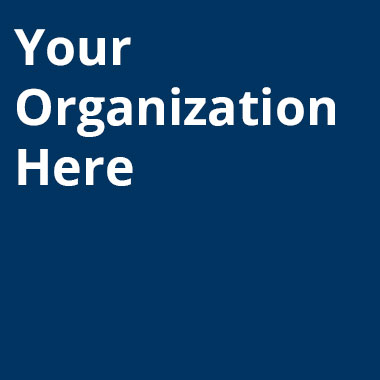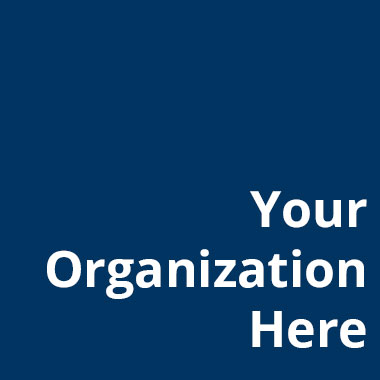ISA Conference Research StreamsArtificial Intelligence and Business AnalyticsChair: Jeffrey Furman, Boston University, [email protected] This new conference track invites papers that delve into the pivotal role of Artificial Intelligence (AI) and business analytics in promoting sustainability and the successful implementation of California's green policies. We welcome contributions that explore how AI and business analytics can enhance the effectiveness of these policies, drive sustainable industrial practices, and contribute to regional economic growth and human welfare. Papers may also discuss the challenges and potential solutions associated with integrating AI, business analytics, and sustainability. We encourage submissions that propose innovative AI and analytics-driven policy interventions, explore the structure and causes of policy changes, and investigate the potential of AI and business analytics in minimizing environmental harm and maximizing the benefits of California's green policies. This track aims to foster a rich dialogue on the intersection of AI, business analytics, sustainability, and policy-making, with a special focus on California's pioneering green policies. Energy, Power, & SustainabilityChair: John Paul Helveston, [email protected] This stream invites papers and panels on the changing market and public policy landscape where the energy industry (including oil and gas, electricity, pipelines) intersects with environmental concerns. Firms in all industries are struggling to adapt to new environmental, stakeholder, and cost pressures related to sustainability. Firms in the energy industry are particularly sensitive to the need to transition as they are shifting from business models that have been focused on procuring and distributing power based on oil and natural gas to non-traditional technologies such as nuclear and renewable power. Such transitions present multiple challenges, such as technological immaturity, customer acceptance, uncertain regulations and subsidies, and potentially higher costs. This stream additionally welcomes research that addresses sustainable development including green jobs/industries, circular economy, decarbonization, eliminating toxins and the variety of stakeholder interests that are engaged in the industry. General and Other Industry StudiesChair: Richard Wang, Babson College, [email protected] Any research on issues or industries not covered in the research streams described above may be submitted to this general stream. Papers or organized panels comparing phenomena, trends, issues, or economic activities across occupations, industries, or geographic regions are especially welcome. Industrial Strategy, Policy and SustainabilityChair: Allison Forbes, Cetner for Regional Economic Competitiveness, [email protected] Public policy – whether national, subnational (California), regional, local or global – plays a significant role in shaping opportunities for industries, including sustainable options within industries. These policies have had a profound impact on the nature of industrial activity and policy, emphasizing sustainability. Industry studies of these policies, along with products, value chains, and regions, have been instrumental in identifying and explaining transformation. Business, academic, and policy analysis has begun to evaluate the limits of production in recent years, with a focus on sustainability. These analyses have questioned the extent to which public and industrial policies have improved corporate profitability, industrial productivity, regional economic growth, and human welfare as anticipated. Some analysts have suggested policy interventions to ensure that the benefits of sustainability are fully captured by industries, nations, and regions, and potential harms minimized. Other analysts question whether expected benefits can be realized. This stream invites papers that address the management or policy implications of this debate as well as papers that continue the process of identifying the structure and causes of policy changes and interventions across industries, with a particular focus on sustainability and California’s green policies. Health Care Delivery, Biotechnology, and PharmaceuticalsChair: Dennie Kim, University of Virginia, [email protected] This stream invites papers and panels that examine the myriad of issues surrounding effective management of health care entities and systems (e.g., hospitals, medical groups, public health agencies, insurance companies, pharmaceutical firms, technology companies, etc.). We welcome work that approaches health care and efforts to improve population health that emerge from a variety of perspectives, including organizational behavior and theory, health care economics, productivity and quality management, human resource management, patient experience and service delivery, informatics, and data and technology management. Research grounded in empirical data is particularly welcomed. Papers that consider the policy and political implications of health care industry practices, the interaction of the health care industry with other sectors, health equity concerns due to pollution impacts and social determinants of health are also encouraged. Innovation and EntrepreneurshipChair: Cameron Miller, Syracuse University, [email protected] This stream invites papers and panels that examine innovation within firms and other organizations such as universities, across organizational boundaries, across country boundaries, and in new entrepreneurial ventures. Innovation is broadly defined for the purposes of this stream and includes the development of technology, products, services, novel business processes and strategies, new approaches to managing business ecosystems, etc. This stream invites research on innovation processes, outcomes, and challenges. Additionally, this stream seeks research examining the growth of new ventures, and the role of institutions and organizations in developing human and financial capital that fosters entrepreneurship and innovation. We encourage research analyzing the implications of sustainability and green policy for innovation and entrepreneurship (e.g., national research funding, intellectual property regimes, stimulating growth in new sectors such as "green tech" incubators and related topics). Labor Markets, Organizations, & Employment RelationsChair: Tashlin Lakhani, Cornell University, [email protected] This stream welcomes papers and panels that examine the impacts of sustainability on labor markets, industrial relations, and/or human resource practices as well as public policy outcomes. Also welcome are submissions that examine organizational practices affecting employees (such as schedule flexibility, variable compensation, new approaches to hiring and performance appraisal, and high-performance work systems) and their impact on organizational and individual outcomes. We also welcome papers that analyze the impact of sustainability on task and job requirements, skill development by academic institutions and in the workplace, how the push for decarbonization affects both skills and employment. We encourage papers that are comparative across industries and/or countries. Operations, Supply Chain, and Technology ManagementChair: Anant Mishra, University of Minnesota, [email protected] This stream welcomes papers and panels that are concerned with the oversight, design, and control of the business processes responsible for the production of goods and services as well as those focused on coordination of (multiple) firms responsible for these business processes within a sustainable supply network. This stream also welcomes submissions focused on the management of projects, which are responsible for the creation of business processes, goods, and services as well as the engineering and other technical work necessary to accomplish these goals. Studies that demonstrate a deep understanding of institutions and practices that shape operations and supply networks as well as cross-industry studies that compare the green management of supply networks, operations, and engineering across different industries are encouraged.
|


